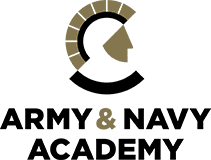 A college prep school is a high school in which the coursework prepares you for a college level curriculum. Learn why college prep schools are important in preparing for college and life beyond.
A college prep school is a high school in which the coursework prepares you for a college level curriculum. Learn why college prep schools are important in preparing for college and life beyond.
In order to clarify what constitutes college prep, let’s take a deep dive into some frequently asked questions. We will also provide some key resources related to private schools, as well as college admissions. And last, we will outline some of the key benefits of a college prep education.
What is a College Prep School?
High schools may differ in their requirements in order to present themselves as college preparatory, but they generally follow a set of state requirements for coursework. The premise behind the requirements is that specific classes form the foundation for a college level curriculum and prepare students to become eligible for state universities. In short, schools, both public and private, want students to not only gain admission to college, but succeed once they are enrolled.
What is a college prep high school? A college prep high school is one where students must take the required classes and pass them. Some college prep boarding schools also offer mandatory study time in the evening, school tutorials, peer-tutoring, evening office hours with faculty, and other resources to excel in the classroom. They also offer extracurricular programs that help students acquire the many soft skills needed to succeed in college.
What are the academic requirements at college preparatory schools? Requirements may differ, so check the requirements at the school you currently attend or plan to attend. If you are planning to apply to a university in California, these are the A-G courses for University of California (freshman admission): History 2 years, English 4 years, Mathematics 3 years, Science 2 years, Language other than English (LOTE) 2 years, Visual and Performing Arts 1 year, and College-preparatory elective 1 year. For example, at Army & Navy Academy, a boarding school for boys, their core curriculum is based on the University of California entrance requirements. In addition, they offer Advanced Placement (AP) and honors courses.
What is taught in college prep schools? Beyond just the subject material detailed above, a college prep education includes: strong writing, research, and critical thinking skills. At most private boarding schools, college prep extends beyond the classroom. Sports, clubs, weekend activities, trips out-of-state and abroad, visual and performing arts, aviation programs, leadership training, and character development may be part of the framework. This is all in an effort to develop soft skills, such as: communication, self-responsibility, time management, goal-setting, leadership, teamwork, and problem-solving.
How do college prep classes compare to honors/advanced placement (AP) courses? College prep refers to the core set of high school classes, so this term has become synonymous with the way standard college prep classes are identified. According to PrepScholar, “college prep is the class you will take when you are not being challenged by the honors or AP version of a class, and when you are not placed into the remedial version of the class for catch-up.”
When should you take honors or AP courses? If you think you can earn a grade of a “B” or higher, then it is wise to opt into an honors or advanced placement class. As a general rule, colleges would prefer to see an above average grade in Honors or AP rather than an “A” grade in standard college prep classes.
What is challenge-avoidance? If colleges see straight A’s in college prep classes, but do not see a student taking some AP or Honors classes, they could see you as an applicant who avoids challenges. To make it through graduation, college demands resilience and perseverance.
How to succeed in high school and prep for college? Getting ready for college is not just about doing well in academics. As stated earlier, colleges are seeking students that will rise to meet academic, as well as social, physical, and ethical aspects of campus life.
Do prep schools help with college admissions? By attending a public or private school that focuses on college preparation, students often gain a number of essential college readiness skills. These skills include: verbal and written communication skills, critical thinking, research skills, and math skills. Beyond this, college prep private schools tend to offer an opportunity to participate in athletics, leadership, clubs, trips, and activities. These extracurricular programs help prepare students for a balanced, productive, and independent life in college.
What are the state requirements to gain admission to a public university? It is important to check the websites for state universities. For example, in the UC system, they list the A-G classes, but also other requirements such as GPA (grade point average). Applicants should have a GPA of 3.0 or higher for in-state and 3.4 or higher for out-of-state. If you do not meet the UC requirements, then explore the California State University (CalState) requirements.
Is it better to apply to private or public colleges/universities? Public universities in your respective state may offer lower tuition and higher financial aid, but this is not always the case. For this reason, it is wise to research both private and public options. It also depends on the state requirements and whether you meet all of them. If you do not, you could find a private college or university that is more flexible about classes taken, GPA, test scores, and other requirements. This does not imply private colleges/universities are less selective. It simply means they may look at other aspects of student success from a different lens.
What is the college preparatory acceptance rate? It varies from school to school. While some private schools boast 100% matriculation, others also support students wishing to pursue a gap year, a year abroad, or help them apply to military service academies.
What curriculum standards do states have to follow to be considered college prep? It was not always the case, but A-G requirements now closely align with the Common Core. Not all states follow this standard, but it does provide more synchronization between the systems.
What is the Common Core? According to EdSource, “Common Core math and English language arts standards explain what students should know and be able to do by the end of each grade level from K-12th grade. They are not the same as a curriculum, which tells educators how to teach the standards. Each district and school can choose its own curriculum to meet the goals of the standards.” For more info about common core, their website details the states that follow these standards.
Are all college prep schools accredited? As noted by K12 academics, “independent prep schools in the United States are not subject to government oversight or regulation; however, many are accredited by regional accreditation agencies.” These are the agencies:
- Middle States Commission on Higher Education, formerly part of the Middle States Association of Colleges and Schools – Postsecondary institutions in New York, New Jersey, Pennsylvania, Delaware, Maryland, the District of Columbia, Puerto Rico, and the US Virgin Islands.
- New England Association of Schools and Colleges – Educational institutions in the six New England states (Connecticut, Maine, Massachusetts, New Hampshire, Rhode Island, and Vermont).
- Higher Learning Commission, formerly part of the North Central Association of Colleges and Schools – Educational institutions in Arkansas, Arizona, Colorado, Iowa, Illinois, Indiana, Kansas, Michigan, Minnesota, Missouri, North Dakota, Nebraska, New Mexico, Ohio, Oklahoma, South Dakota, Wisconsin, West Virginia, and Wyoming.
- Northwest Accreditation Commission for primary and secondary schools and Northwest Commission on Colleges and Universities (NWCCU) for postsecondary institutions in Alaska, Idaho, Montana, Nevada, Oregon, Utah, and Washington.
- Southern Association of Colleges and Schools – Educational institutions in Alabama, Florida, Georgia, Kentucky, Louisiana, Mississippi, North Carolina, South Carolina, Tennessee, Texas and Virginia.
- Western Association of Schools and Colleges – 4-year educational institutions in California, Hawaii, Guam, American Samoa, Micronesia, Palau, and Northern Marianas Islands, as well as schools for American children in Asia.
- Accrediting Commission for Community and Junior Colleges, formerly part of the Western Association of Schools and Colleges – 2-year educational institutions in California, Hawaii, Guam, American Samoa, Micronesia, Palau, and Northern Marianas Islands, as well as schools for American children in Asia.
Is it better to go to a private boarding or day school to prepare for college? It depends on where you live. If you want to gain more confidence, independence, and resilience, a boarding school can be a great choice. Many boarding schools, like Army & Navy Academy, also offer a day option for local residents.
How do you find the best college prep schools? There are a number of ways to research schools. Websites like Boarding School Review and Private School Review allow families to compare up to three schools at a glance.
Why Enroll in a College Prep School?
Attending a college prep school may offer the following benefits:
- Improve study habits, time management, and core competencies
- Increase chances of acceptance to a college/university of choice
- Prepare for the rigors of college academics
- Build interests in preparation for choosing a college major
- Get recommendations from faculty and administrators
- Receive SAT/ACT test preparation courses and/or support
- Benefit from college counseling and planning services
- Learn how to choose colleges, go on campus tours, apply, and get recommendations
- Prepare for campus life by developing soft skills.
- Learn how to apply for college scholarships and financial assistance
If you are researching the best college prep schools, then it is important to determine whether you will pursue a public vs. private education.
Beyond academics, also consider the areas you need to work on in order to develop college readiness. Although the focus of this article has been primarily on academics, there are many other ways students need to prepare for the demands of an independent life on a college or university campus.
A school, like Army & Navy Academy in Carlsbad, California, offers an integrated college preparatory experience. This type of education helps students acquire an academic foundation, form strong life habits, gain leadership skills, and live a balanced life.


